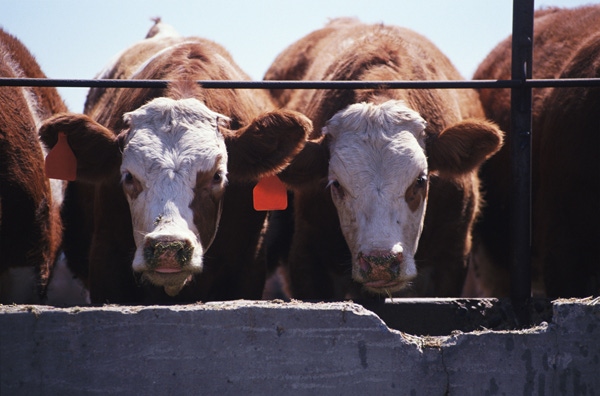January 15, 2013

Drought and high feed costs could continue to restrict livestock markets in 2013 if conditions do not improve, says Dr. David Anderson, professor and economist in Livestock and Food Products Marketing with the Texas A&M AgriLife Extension Service. Anderson addressed livestock producers from across the country this week during an issues conference at the American Farm Bureau Federation’s 94th Annual Meeting.
“Underlying (what) we talk about in terms of livestock markets, everything starts with where we are with drought and pasture conditions,” Anderson said. “Where we go in terms of costs, particularly, will be based on what happens with the drought in the coming year.”
Corn prices reached as high as $8 per bushel last year due to the drought. Higher feed costs led to increased production costs for cattle, pork and poultry farmers, resulting in increased retail prices to consumers. However, Anderson projects that as more acres of corn are planted in 2013, lower prices and decent yields may bring the market back into equilibrium, provided the drought subsides.
Anderson also noted that meat prices in 2013 largely will hinge on demand. Per capita consumption of all meat in the U.S. has declined in the past five years, reflecting higher retail prices and a weak domestic economy.
“The key for how high those market prices can go, how much those prices recover to pay for record-high feed costs we can get, is really going to hinge on what happens to demand for those meat products in the overall economy,” he said.
While per-capita consumption of beef, pork and poultry are down, Americans still enjoy eating meat. Other factors like a growing population, increased exports and decreased production have affected the per-capita measurement.
“As we see reports over the next couple of years about declining meat consumption, it doesn’t have anything to do with people not liking meat,” Anderson noted. “It’s that we’re producing less, and we have booming export markets.”
Export markets will continue to be a strong outlet for livestock producers in 2013. American farmers and ranchers stand at the ready to fill increased demand from around the world as the global economy improves and dietary preferences continue to shift to include more meat.
You May Also Like




